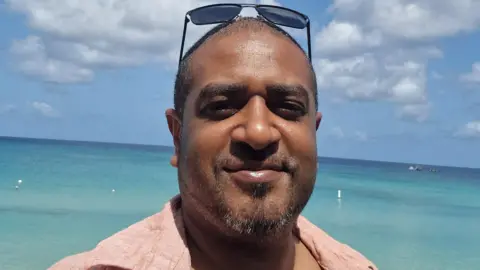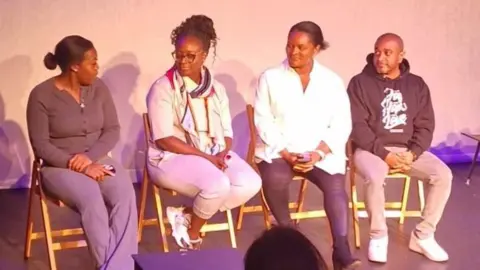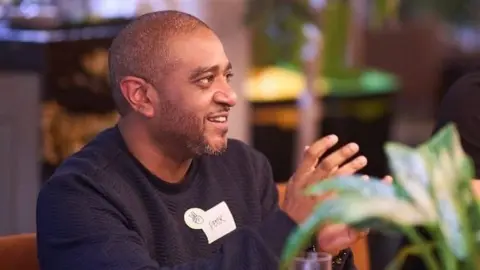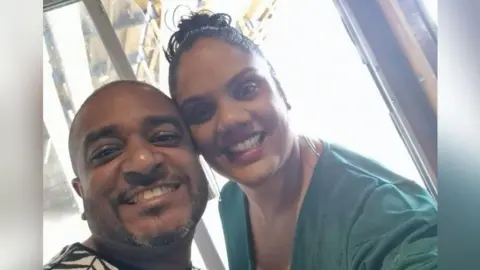'I see you': The movement getting black men talking
 Peter Reeves
Peter ReevesA campaigner has started a movement to get black men to talk openly about their experiences with trauma.
Peter Reeves, 44, from Romford, began the group NINE - or "A Nod is Not Enough" - to help men move on from what he felt was a simple nod of acknowledgement in the street.
It now has about 30 members from across Essex and London, between the ages of 20 and 60, who chat on a WhatsApp group, with meetings planning in the coming months.
Mr Reeves said: "Black men don't talk enough but when we see each other in the street - even if we are strangers we will probably give each other a nod. When you see another black man you usually just give them a nod just to say 'I see you'."
He added: "Just out of the recognition of the oppression and issues that each of us must have suffered from in our lives just by being a black man."
 Peter Reeves
Peter ReevesMr Reeves and his partner Gina lost their son Danté to stillbirth in 2022.
The British-Caribbean parents organised talks and mindfulness walks since the loss of their child in order to get the community talking.
He said black men "need to go a step beyond" the nod in the street and said he believed talking was "empowering".
"We don't talk about our emotions and that's only holding us back," he said.
 Peter Reeves
Peter ReevesHe said generational trauma of slavery was often used to blame for the silence found in the community.
"It's not a new thing and it is not shame, it's more that we have been conditioned to be like this," he said.
Men in other cultures often thrived from talking to their peers, he added, but black British men were four times more likely to be hospitalised than white men for poor mental health.
They were also less likely to seek help before reaching crisis point and were three times more likely to be detained under the Mental Health Act, according to the charity MIND.
A spokesperson from Young Minds said black men were often told to "be a man" so were conditioned not to show any signs of weakness from a young age.
University of Cambridge has worked with The Voice, Britain's only national newspaper for black communities, to survey 10,000 black people in Britain.
The study said 68% of respondents, or a family member, had suffered from mental health problems, and 87% said black families did not discuss mental health enough, including generational issues.
 Gina and Peter Reeves
Gina and Peter ReevesFollow Essex news on BBC Sounds, Facebook, Instagram and X.
